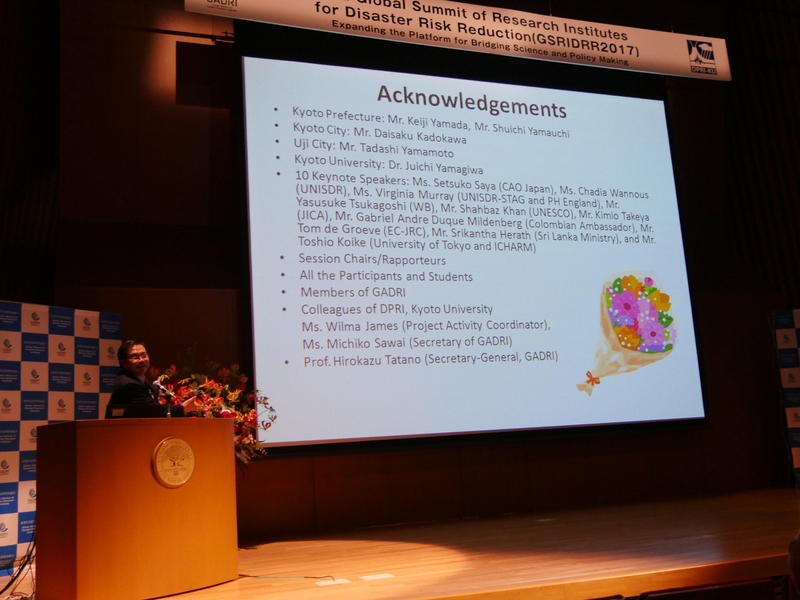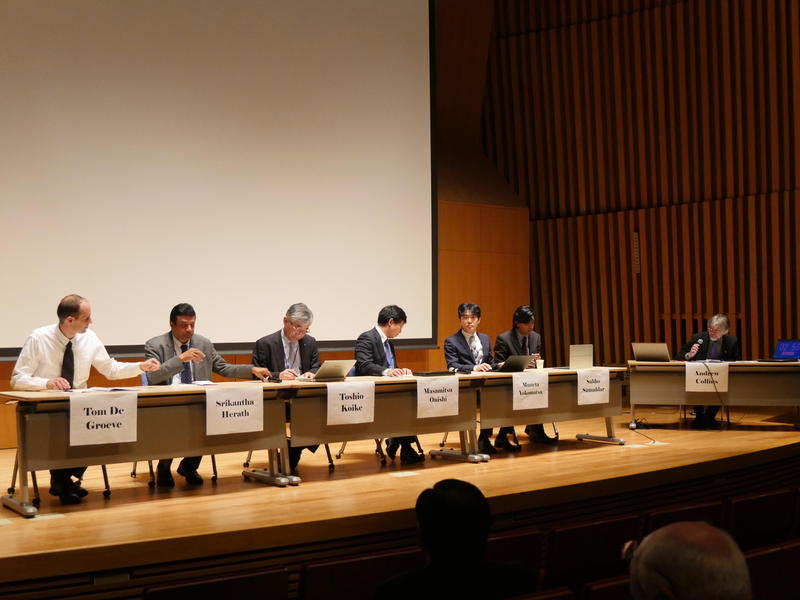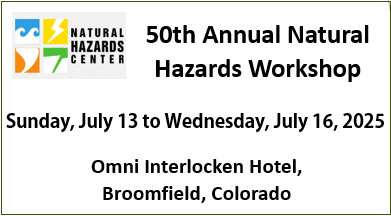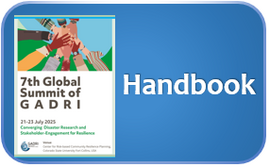Benefits of participating in the GADRI Global Summit:
- Opportunity to engage with GADRI members in a global context as well as on a regional basis.
- Global orientation on DRR research, contributions and achievements.
- Especially taking advantage of the EC-JRC research work. A lot of science policy translations are conducted there, and it is an opportunity for GADRI to link and learn from the European and European local contexts.
- Vice versa, it will provide scientists around the world to work on that area and to get better engagement with the wider academic world, find mechanisms for the academic world to have greater influence on policies, and national policies.
- The GADRI Global Summit provide an opportunity to showcase some examples, and bring the right people together from the global context and to maximise knowledge sharing on what we know, and needs to be done.
- The lessons learned, and topics discussed at the GADRI Global Summit are of global value to our membership and beyond.
- Outcomes and selected papers will be published in the Proceedings of the 6th Global Summit of GADRI via Disaster and Risk Research: GADRI Book Series, Springer Japan.
The 2011 Global Summit paved the way to start the Global Summit series of GADRI. In November 2011, the Disaster Prevention Research Institute (DPRI), Kyoto University held the First Global Summit of Research Institutes for Disaster Risk Reduction which was held at DPRI, Kyoto University, Uji Campus, Kyoto, Japan in November 2011. At the conference, it was the proposed to establish a network of disaster research institutes to be fostered by DPRI, Kyoto University to bring together research institutes working on disaster risk prevention and mitigation in various disciplines.
The 7th Global Summit of GADRI will consist of:
- plenary sessions
- panel group discussions
- poster presentation with GADRI Scholarships awarded to young professionals (up to the age 35)
- seeds and needs networking with institutes session
- presentation sessions of outcomes of the panel group discussion sessions; and
- a wrap-up session to develop the final outcomes of the conference.
7th Global Summit of GADRI:
Converging Disaster Research and Stakeholder-Engagement for Resilience
Communities, regions, and countries across the globe continue to struggle with natural and anthropogenic hazards with certain vulnerable populations often disproportionately affected, and struggle to recover following moderate to severe events.
The science and technology behind community and regional resilience has been developing for several decades with the most progress made over the last decade, but there is still a significant gap between that science and related research, and its implementation into policy to have positive effects on communities.
The seventh global summit of the global alliance of disaster research institutes will take place at Colorado State University in Fort Collins, Colorado, with the Center for Risk-based Community Resilience Planning serving as host in collaboration with the Disaster Prevention Research Institute from Kyoto University. The focus of this 7th Global Summit is on understanding and improving the relationship between science and technology, policy, and community in the context of the elements of the UNDRR Sendai Framework for Disaster Risk Reduction and the UNCC Paris Agreement, with both at their approximate midpoints.
GADRI recognizes the disproportionate effects of past decisions on future generations, and therefore a focus on gender equity, youth equity, and how we as disaster research institutes can provide science and methods to help ensure intergenerational risk equity and equitable risk transfer; and therefore there is key involvement and leadership by younger hazards and disaster researchers throughout the program. Ultimately, how do we take good resilience science, create policy, and then get solutions and decision-support into the hands of stakeholders and decision-makers at community, regional, and national levels. We know, regardless of county, the engagement of stakeholders early in the process is key since the mathematically optimal solution for communities is often impractical from a social, political, and economic standpoint.
This, in turn, necessitates a convergence approach – focusing on disciplines and methodologies – to facilitate implementation of research for improving resilience of communities. The 7th Global Summit will have three subthemes with each being a track for the parallel sessions following plenary sessions each morning.
Sub-themes
Subtheme 1 :
focuses on convergence approaches in research and implementation including methodological convergence such as combining field studies with experimental tests or numerical analysis and extending to disciplinary convergence which brings together key disciplines to collaborate to solve a problem that cannot be solved by one discipline alone. Essentially, beginning with the motivation for such novel approaches to solve disaster risk reduction challenges and solve real problems.
Subtheme 2:
focuses on engagement, partnerships, communication, and resulting policy; underscoring the fact that stakeholder engagement is critical to implementing research and turning it into policy to ensure communities don’t just survive but thrive.
Subtheme 3:
underscores the need for fundamental research and focuses on advances in disciplinary and transdisciplinary research for natural hazards, cascading hazards, the resulting disasters, and models to reduce adverse impacts.
- Celebration of the 10th Anniversary of GADRI on 20 July 2025
- 7th Global Summit of GADRI from 21 to 23 July 2025









